The Power Of Empathy To Cultivate Resilience In Your Child
Have you ever wondered whether you are being ‘too hard’ or ‘too soft’ on your child?
You want to prepare your child for success in the world, but secretly wonder whether you’re doing enough of the right things.
We live in a culture that is very opinionated about how we are raising the next generation.
On one side you have people saying that ‘we are raising a weak generation who need encouragement & awards just for participation’, & on the other side you have people saying that ‘children need protection & even removal from life’s challenges’.
The truth is, resilience is found in the middle.
Resilience is the mental and emotional strength to bounce back from stress & challenge.
It is one of the most important skills we can cultivate in our children.
Yet much is still misunderstood about how to develop resilience.
Many still mistakenly believe that the process of developing resilience is to place an individual under high stress & then tell them to ‘harden up’.
In some individuals this process may produce a mastery of negative thoughts (for example, navy seals), but it does not produce healthy resilience.
Resilient individuals have learned how to master their negative thoughts, but they also know how to emotionally process pain.
They know how to be vulnerable with trusted people & how to ask for help. They know how to find emotional safety after they go through a challenge.
Resilience is found in the recovery.
When you are trying to build a muscle, you go to the gym & work out with weights. You purposely put your muscles under resistance by choosing weights that would be a challenge for your physically.
When we are exercising with weights, tiny tears are happening at a microscopic level in our muscles. It is during the recovery time, away from the gym, that our muscles rebuild and repair themselves stronger than they were before. This is the process of building muscle.
Strength is gained in the space between resistance & recovery.
This same process occurs with mental stress.
An individual needs a certain amount of stress for peak performance & growth. Yet if that individual stays in an ongoing stressed environment or state, their physiological stress centers get locked ‘on’. This is when we see chronic health and mental wellness problems develop.
Stress & challenge are positive if they also have times of recovery & safety.
In order to cultivate resilience in our children we need to allow them to experience challenges, but also provide emotional safety.
“Resilience is built in the space between a stretch & emotional safety. Without challenge we will not grow, but without love we will not recover”.
This is why it is so important to develop emotionally safe environments for children.
An emotionally safe environment means that the child feels accepted and loved, not matter what happens.
An emotionally safe environment looks like:
- it’s ok to feel your feelings
- it’s ok to have bad days
- it’s ok to think your thoughts
- it’s ok to have your opinion
- it’s ok to make mistakes
The foundation of an emotionally safe environment is empathy.
Empathy is the capacity to non-judgmentally, see the world through another person’s perspective & to communicate this understanding of another’s feelings.
Raising children from a perspective of empathy, doesn’t mean having no boundaries, consequences or discipline. It doesn’t mean allowing negative behavior or giving them rewards for basic tasks.
Raising children from a perspective of empathy means the first step is connection rather than shame.
By creating an emotionally safe environment & approaching a child from a perspective of empathy, you are giving them the space to recover from the stresses & challenges of life.
You are creating a safe space for them.
Empathy teaches children:
- They are not alone in the world
- They are normal & the challenges they are facing are normal
- There are safe places you can find even when things feel unsafe
- The power of being seen and heard
- To build healthy social connections with others
- To regulate their own emotions
We cannot save another individual from the pain & challenge they are experiencing in their own life. But the connection of empathy, sends the message that they are not alone in their pain.
Resilience develops best in children who have a deep, empathetic connection with the important adults in their world, while also being encouraged towards independence & competency.
This places parents, family members, teaches & coaches in the position as a guide (rather than a savior), to help children through challenging situations.
It is not weakness to approach a child from a perspective of empathy, it is giving them great strength.
For more practical strategies on cultivating resilience in your child, check out our free guide – “5 Proven Ways To Build Resilience In Your Child.” CLICK HERE












